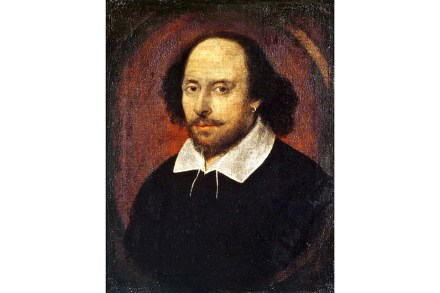The clue to Shakespeare’s sexuality lies in the sonnets
The question ‘Was Shakespeare gay?’ is not very rational. It might be a little like asking ‘Was Shakespeare a Tory?’. Some of his scenarios might coincide with later developments – Jaques trying to pick up Ganymede in As You Like It (gay), or Ulysses’s speech on degree in Troilus and Cressida (Tory). But the historical conditions are not there. No doubt there have been people keen on same-sex relations since the dawn of time. But the possibilities of a social identity embedded in the word ‘gay’ didn’t exist in the 16th century, nor the medical diagnosis from which the word ‘homosexual’ arose. Nor will ‘sodomite’ do. That describes some very


